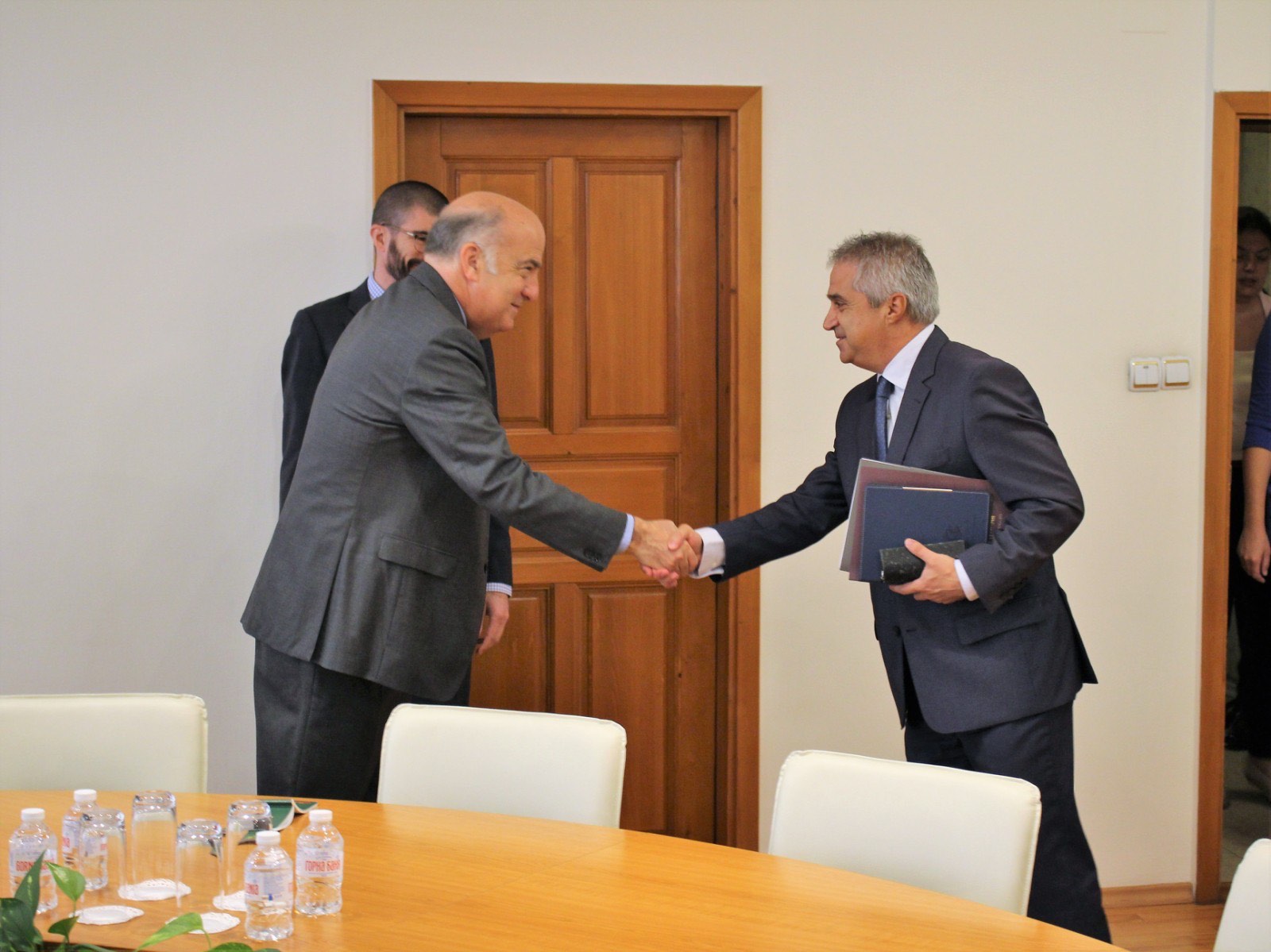USA and Bulgaria with common energy interests
The intergovernmental agreement between the USA and Bulgaria, nuclear cooperation and RES technologies were among the topics discussed at a meeting between the Energy Ministry team and a US Embassy delegation.
The meeting held on 28 June, was attended by Energy Minister Rumen Radev, Deputy Minister Iva Petrova, Deputy Minister Krassimir Nenov and Karina Angelieva, Head of the Cabinet of the Minister. The US Embassy was represented by Ambassador Kenneth Merten Deputy Chief of Mission Andrea Brouilette-Rodriguez and Mr Aron Cope, Adviser for Political and Economic Affairs.
Minister Radev presented the general priorities of the Ministry's team regarding energy policy and strategy for the development of the energy sector, focusing on the co-operation with the US in the area of nuclear energy. In this context, the steps taken towards the finalization of the IGA were also discussed. Deputy Minister Krassimir Nenov updated the guests about the process in accordance with the framework set by the national Assembly of the Republic of Bulgaria. According to the Parliament's decision, there is a forthcoming conclusion of an agreement on the construction of new nuclear power capacity at Kozloduy Nuclear Power plant with AP1000 technology (Kozloduy Nuclear Power Plant Unit 7).
Ambassador Merten underlined that a significant amount of work has been completed so far and described the agreement as a “new era of co-operation between the two sides”. He said Bulgaria could be one of the first countries in Europe to have an AP 1000 reactor installed and running, which represents an exceptional opportunity. The Ambassador was also interested in the licensing process for the new fresh nuclear fuel and touched on the topic of small modular reactors that are a very promising technology.
The parties also discussed the licensing of fresh nuclear fuel of Westinghouse Electric Sweden AB as an essential part of the Government's action to ensure diversification of supplies. Minister Radev underscored the coordinated work of all stakeholders, including the ongoing review of the package of documents, such as neutron-physical, thermo-mechanical, strength, thermo-hydraulic and radiological analyses for mixed and homogeneous charges, as well as the time needed before the Nuclear Regulatory Agency authorizes the operation of the new type of nuclear fuel.
Another discussed issue was the diversification of natural gas supplies, with Deputy Minister Iva Petrova saying: “The interconnector between Bulgaria and Greece has been a turning point because it provides access to the LNG terminal and the Southern Gas Corridor through which natural gas is transported from Azerbaijan to us. A further key project is the LNG terminal in Alexandroupolis, where Bulgaria participates through its company, Bulgartransgaz. We hope it will start operation by the end of the year. Bulgargaz has a reserved capacity of 1 billion cubic metres at the terminal. We are working on interconnectors with Serbia and North Macedonia, along with increasing the capacity of the UGS Chiren. We take part in the Joint Gas Supply Platform launched by the EC. These efforts have resulted in securing supplies and diversification for both, our country and the South East European region.”
The US Ambassador stated that he was glad to see how successful and proactive Bulgaria was in terms of security of supply of natural gas and diversification of sources and routes, and praised our country's good relations with other countries in the region.
At the end of the meeting, Minister Rumen Radev invited Bulgaria and the United States to discuss possible co-operation in geothermal energy, RES, new technology low emission solutions for power generation, including small modular nuclear reactors and green hydrogen. Opportunities for both technological transfers and investment interest, as well as for possible public-private partnerships were emphasized.

